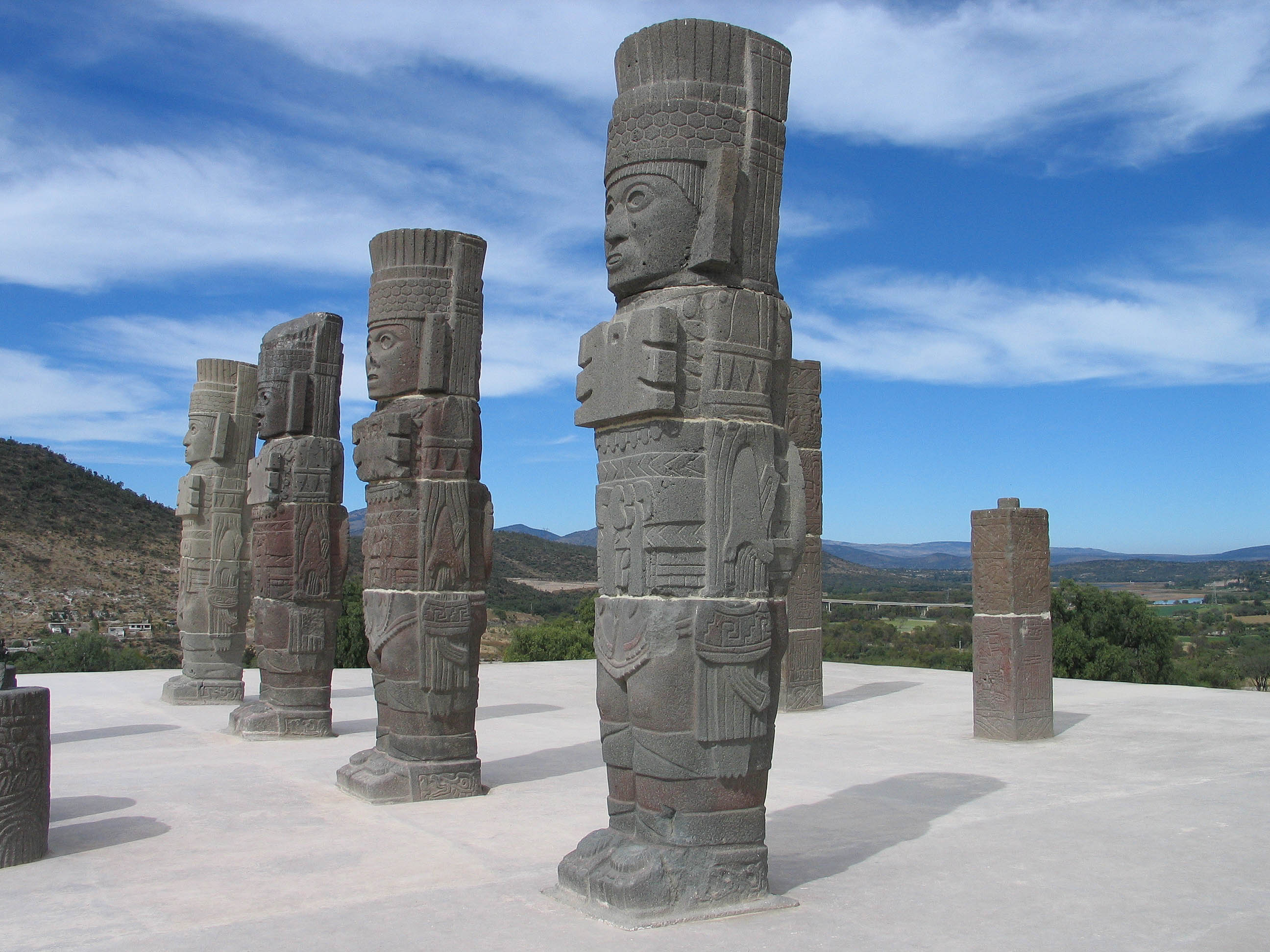All AP Art History Resources
Example Questions
Example Question #1 : Understanding Terminology That Describes Sculpture Of The Americas
The Olmec were the first major civilization of Mesoamerica and the Pre-Columbian era, flourishing from about 1500 BCE to 400 BCE.
The Olmec are perhaps most famous for which unique style of sculpture, made from volcanic rock?
They were not sculptors.
Colossal heads
Small statuettes
Bowls and plates
Sacrificial altars
Colossal heads
Very little is left from the Olmec civilization, and historians know very little about them as a whole, aside from pieces of evidence that point to certain advancements or characteristics such as being the first civilization in the Western Hemisphere to develop a writing system. The Olmec are recognized for their giant sculptures of heads made from volcanic rock, called the Olmec Heads. These heads have different characteristics and have been found all around the region where the Olmec lived. It can only be speculated how they moved such huge pieces of volcanic rock. Although the Olmec made other types of sculptures, relatively few of them have been found.
Example Question #1 : Sculpture Of The Americas
Large, elongated stone slabs covered in intricate carvings are typical of the Classic Period of Mesoamerican art. These sculptures, popularized by the Ancient Mayans, are known as __________.
stucco
altars
zoomorphs
stelas
lintels
stelas
Large, elongated Mayan stone slabs covered in intricate carvings are known as "stelas." They often depicted the ruler of the city they were located in, sometimes disguised as a god. Very few have been preserved.
Example Question #1 : Sculpture Of The Americas
__________ are large Mayan sculptures that consist of one large stone carved into the shape of animals or living creatures and covered in intricate relief sculpture.
Zoomorphs
Stelas
None of the other answers is correct.
Lintels
Stucco
Zoomorphs
Zoomorphs are large stones carved to resemble animals by the Mayans. They were often covered in relief sculptures. Zoomorphs may have been used as altars.
Example Question #1 : Sculpture Of The Americas
The most well known type of Olmec art is __________.
intricate silver jewelry fashioned in complex shapes with gemstones
colossal basalt sculptures that only depict the head of their subjects
large-scale fresco murals depicting massive battle scenes
bas-relief sculptures illustrating the ritualistic Mesoamerican ballgame
colossal basalt sculptures that only depict the head of their subjects
The Olmec civilization dominated what is now Southern Mexico from roughly 1500 BCE to 400 BCE, laying the groundwork for the later civilizations of the Maya and Aztec. The most familiar and most impressive part of their civilization that has survived are basalt sculptures of heads that weigh between 6 and 50 tons, and which took extraordinary coordination to have the stones moved and sculpted into their proper forms.
Example Question #2 : Identifying Artists, Works, Or Schools Of Sculpture Of The Americas
Arguably the most recognizable piece of artwork from Mesoamerica is the Aztec __________. This stone was carved in the mid-fifteenth century and presents different worlds of the sun according to Aztec mythology. This stone was once a part of the Templo Mayor of Tenochtitlan.
Throne
Sun Stone
Altar
Stucco
None of the other answers is correct.
Sun Stone
The Aztec Sun Stone (also known as the Aztec Calendar Stone) is an elaborately carved stone disk that represents a link between humanity and the divine through the current ruler of the Aztec Empire at the time of its carving. It is not a working calendar. It may also have at some point been anointed with blood sacrifices to please the gods the Aztecs believed in.
Example Question #161 : 3 D Art

These stone monuments left behind by the Toltec civilization, which occupied what is now Hidalgo, Mexico, are an example of which type of monument frequently found in Pre-Columbian architecture and sculpture?
Zapotec Guardians
Atlantean figures
Aztec Warriors
Toltec Guardians
Warior Totems
Atlantean figures
Atlantean figures have been found in various different areas of pre-Columbian Mesoamerica, most notably in Hidalgo, Mexico, which was previously occupied by the Toltecs. Their purpose is generally as support pillars. Atlantean refers to the Titan god Atlas, from Ancient Greek mythology, who was doomed to hold up the heavens for all eternity. They are generally carved to represent fierce, bellicose men. When the Aztecs found these pillars after the Toltecs abandoned their city, they imagined that the pillars represented their own gods, and considered the city divine.
Image accessed at: https://commons.wikimedia.org/wiki/File:Telamones_Tula.jpg
Photograph by Luidger
Example Question #1 : Sculpture Of The Americas
Pre-Columbian art refers to the artistic endeavors of the indigenous populations of which areas prior to the mid-sixteenth century?
North, South and Central America and the Caribbean
Russia
Eastern Europe
Southeast Asia
China
North, South and Central America and the Caribbean
The term "Pre-Columbian" refers to a time before European colonization of the Americas. The term can be deconstructed as "Before Columbus," as Christopher Columbus' arrival to the Americas is seen as the beginning of European influence in what was then known as the "new world."
Example Question #1 : Answering Other Questions About Sculpture Of The Americas
Art and architecture from which Mesoamerican civilization is arguably the most well known and studied, its creators having inhabited Mexico during the late postclassic period of the Pre-Columbian era, when the European colonization of the Americas began?
The Olmec
The Toltec
The Aztecs
The Mayans
The Inca
The Aztecs
The Aztecs occupied a large portion of central Mexico and Mesoamerica from the fourteenth to the sixteenth century. They were the last surviving major civilization of the Mesoamerica by the time that Spanish sailors invaded the area. Much is known about their art and culture, as they were (historically-speaking) very recently conquered by Spain. Although Spain did destroy a very large amount of their artwork and culture as part of their takeover of Latin America, much remains, and was later studied.
All AP Art History Resources




